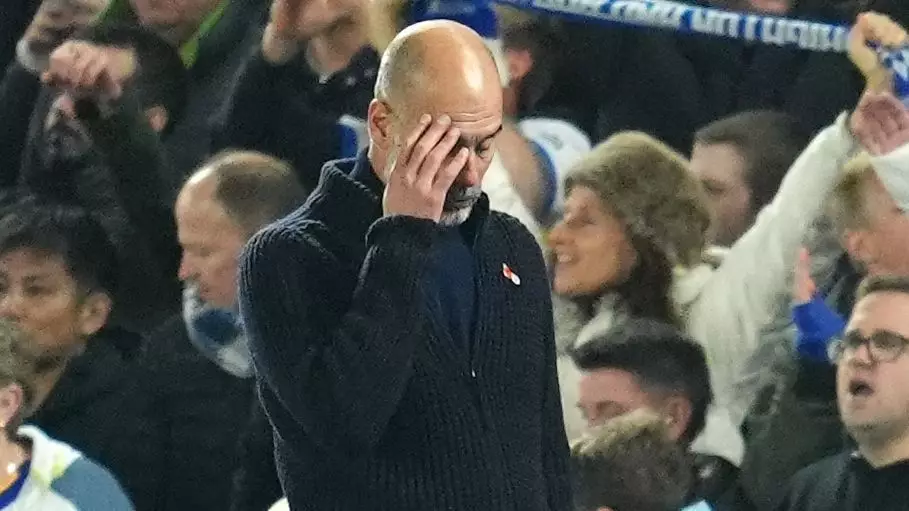In a surprising and disheartening turn of events, Pep Guardiola finds himself amid the most difficult stretch of his managerial career following Manchester City’s fourth consecutive defeat. The latest loss, a 2-1 setback against Brighton in the Premier League, raises critical questions about the team’s depth and resilience, especially as they trail league leaders Liverpool by five points. For a club that has enjoyed unprecedented success in recent years—especially under Guardiola since his arrival in 2016—this sequence of failures is startling and unprecedented.
Guardiola’s record of consecutive losses is not only alarming but also reveals how far the club has fallen in a short span. The last time Manchester City faced four defeats in a row across all competitions was in 2006, a period that predates the transformative Abu Dhabi investment and Guardiola’s revolutionary tactics that reshaped the club. It is worth noting that before recent events, Guardiola had never experienced such a bleak run since embarking on his managerial career in 2007.
Historically, Guardiola has navigated through numerous challenging situations, yet he has always found a way to emerge successful. One could argue he was close to facing such a crisis during the 2014-15 season at Bayern Munich. A string of disappointing results that included a penalty shootout loss in the German Cup followed by three consecutive losses—two in the Bundesliga and one in the Champions League—tested his resolve, albeit he had already secured the league title by then.
The current scenario at Manchester City, however, is not merely a series of unfortunate outcomes but indicative of deeper issues, predominantly injuries plaguing key players. With star midfielder Rodri sidelined for the season due to a severe ACL injury, along with the unavailability of crucial defenders like Rúben Dias, John Stones, Manuel Akanji, and Nathan Aké, Guardiola faces an uphill battle to maintain any sort of competitive edge. The return of Kevin De Bruyne has also not been as impactful, as he continues to struggle to find form post-injury.
When questioned about the potential end of his era at Manchester City, Guardiola’s response was layered with awareness. “It’s what the people want, right?” he nuancedly remarked. His sentiments underline the immense pressure surrounding a club that has set exceedingly high standards over the past few years. Guardiola’s training sessions, tactical ingenuity, and ability to foster player development have been hailed globally, but amidst injury crises, even the best coaches are sometimes at the mercy of circumstances beyond their control.
During the match against Brighton, City displayed a glimpse of what they could achieve, showcasing dominance in the first half and taking an early lead through Erling Haaland. However, as has been the case far too often in recent outings, City could not maintain that intensity, ultimately allowing Brighton to execute a remarkable comeback by scoring two late goals. This inability to sustain pressure and capitalize on early advantages reflects not just on player performance but on overall team dynamics—something Guardiola must assess comprehensively.
Addressing the Need for Unity and Resilience
In the wake of these disappointments, Guardiola has pointedly indicated the need for togetherness within the squad. Post-defeat comments from team captain Kyle Walker underscore that sentiment, focusing on the players’ responsibility in turning things around. “It’s down to us as a group of players to make sure that we’re fighting for this great club,” he stated, hinting at the necessity for individual and collective accountability.
Moving forward, Manchester City faces a decisive series of fixtures that could shape the remainder of their season. The coaching staff will need to draw on all available resources while hoping for a swift recovery from injuries. Guardiola will likely emphasize adaptability and resilience in training, hoping to reignite the fighting spirit that has characterized his teams in the past.
As Guardiola navigates this unprecedented challenge, his ability to respond to adversity will not only define this season but will also impact his legacy at Manchester City. Whether this marks the beginning of the end or a mere bump in an illustrious career remains to be seen, but one thing is clear: the path ahead will require unity, determination, and possibly, a strategic recalibration for both the manager and his players.

